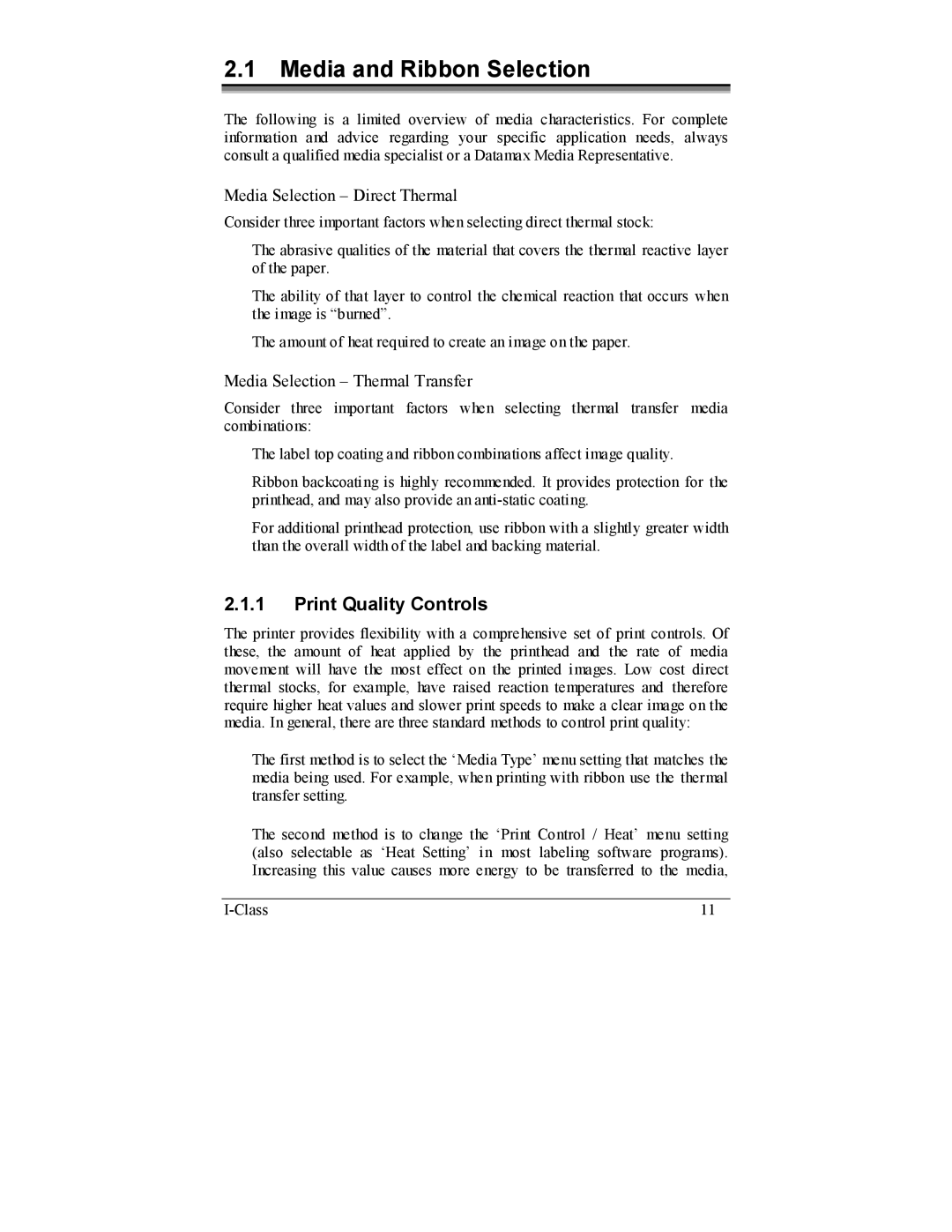
2.1Media and Ribbon Selection
The following is a limited overview of media characteristics. For complete information and advice regarding your specific application needs, always consult a qualified media specialist or a Datamax Media Representative.
Media Selection – Direct Thermal
Consider three important factors when selecting direct thermal stock:
The abrasive qualities of the material that covers the thermal reactive layer of the paper.
The ability of that layer to control the chemical reaction that occurs when the image is “burned”.
The amount of heat required to create an image on the paper.
Media Selection – Thermal Transfer
Consider three important factors when selecting thermal transfer media combinations:
The label top coating and ribbon combinations affect image quality.
Ribbon backcoating is highly recommended. It provides protection for the printhead, and may also provide an
For additional printhead protection, use ribbon with a slightly greater width than the overall width of the label and backing material.
2.1.1Print Quality Controls
The printer provides flexibility with a comprehensive set of print controls. Of these, the amount of heat applied by the printhead and the rate of media movement will have the most effect on the printed images. Low cost direct thermal stocks, for example, have raised reaction temperatures and therefore require higher heat values and slower print speeds to make a clear image on the media. In general, there are three standard methods to control print quality:
The first method is to select the ‘Media Type’ menu setting that matches the media being used. For example, when printing with ribbon use the thermal transfer setting.
The second method is to change the ‘Print Control / Heat’ menu setting (also selectable as ‘Heat Setting’ in most labeling software programs). Increasing this value causes more energy to be transferred to the media,
| 11 |
